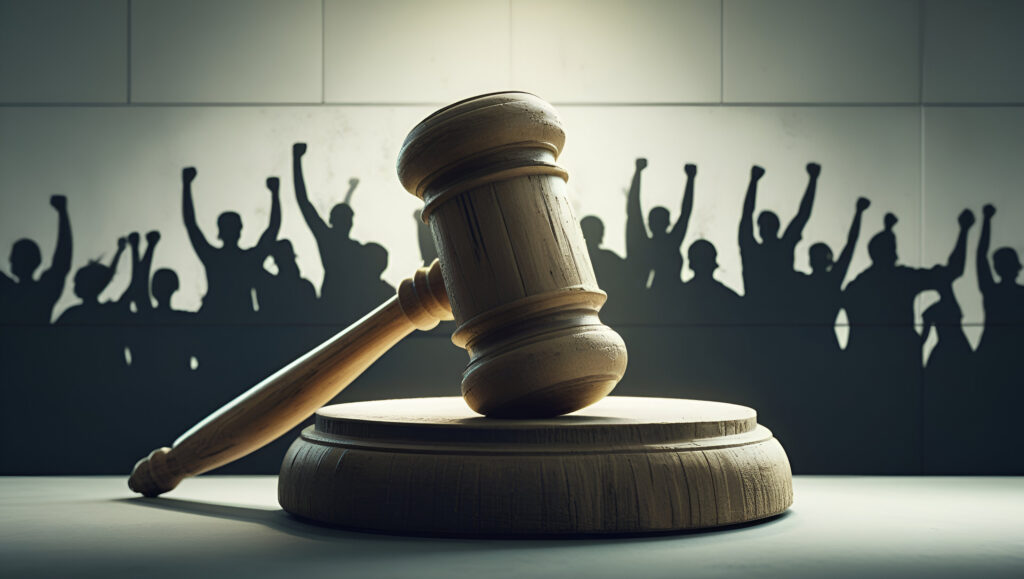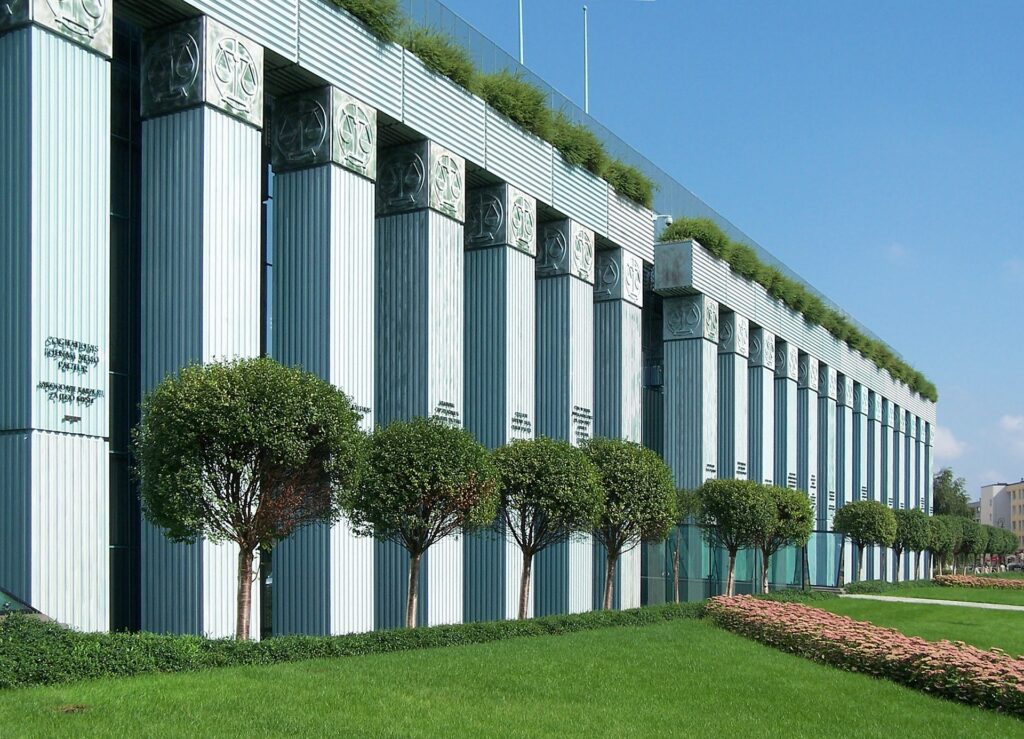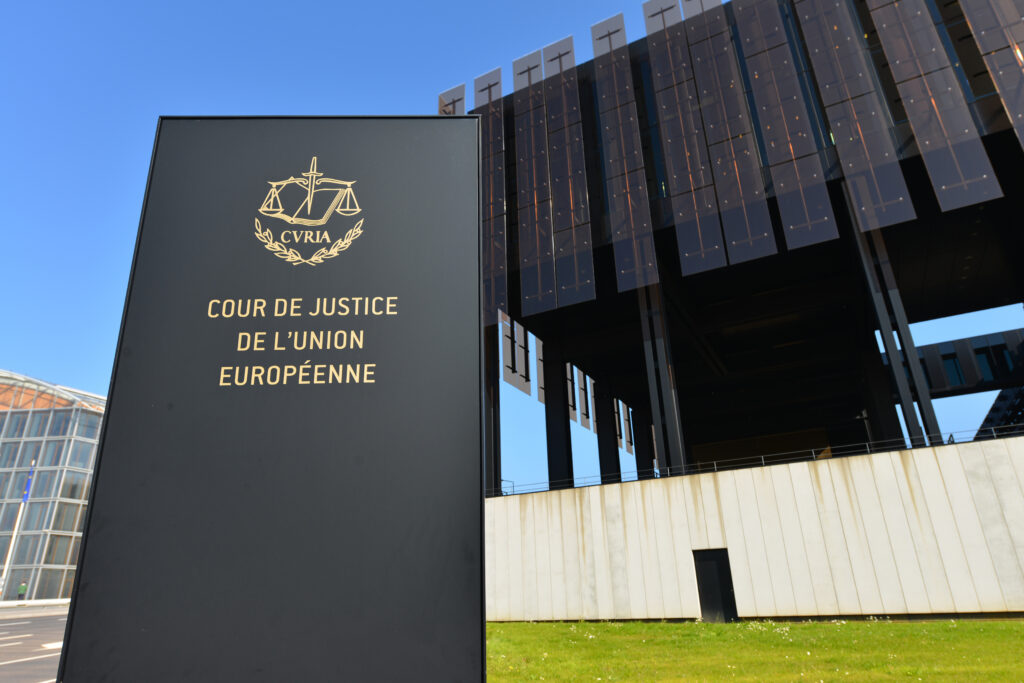On Thursday, 26 June 2025, 28 judges of the Supreme Court issued a statement that is fully in line with the narrative persistently promoted by the government that the Extraordinary Chamber of Review and Public Affairs is not a court. Representatives of Donald Tusk’s government have been continuing this bizarre narrative for months, despite the fact that this government functions on the basis of a vote of confidence expressed by the Sejm elected in the elections of 15 October 2023, the validity of which was also confirmed by the same Chamber on the basis of Article 101(1) of the Polish Constitution.
This view is said to be based on rulings of the Supreme Court and international courts. In turn, according to the judges, this would mean that the Sejm cannot perform the task of the Supreme Court referred to in Article 129(1) of the Constitution (analogous to the aforementioned Article 101(1)), i.e. to confirm the validity of the presidential elections.
At this point, it should be emphasised that this statement has no legal force. It does not constitute an official act, was not issued in connection with any court proceedings, and does not take the form of a resolution. Even if, regardless of the above, one were to refer to its content, it would also have to be considered flawed or, to put it bluntly, contrary to the truth.
The view that the Chamber of Review and Public Affairs “is not a court” has no legal basis, as clearly stated, for example, by the Ombudsman. Such a basis certainly cannot be found in the rulings of the Supreme Court, which do not have generally binding legal force. The European courts, as recently emphasised by the First President of the Supreme Court, are not competent to decide in an abstract and general manner (i.e. not relating exclusively to specific court proceedings concerning a specific natural or legal person) on the status of Polish courts. Their powers (which, incidentally, may have been exceeded in the rulings referred to by 28 judges) certainly do not include ruling on the validity of presidential elections in Poland, as acknowledged by the members of the OSCE Observation Mission. The only body competent to rule on this matter would be the Constitutional Tribunal, which, however, has not yet challenged the constitutionality of the provisions establishing the Extraordinary Review and Public Affairs Chamber and making it competent to examine election protests and rule on the validity of presidential elections. Moreover, it is impossible to identify the basis for such unconstitutionality.
The final appeal of 28 judges, according to which the Extraordinary Review and Public Affairs Chamber of the Supreme Court cannot rule on the validity of elections (which would mean that some other chamber should rule on this matter), in practice calls for a violation of Articles 127(7) and 129(2) of the Constitution, according to which the rules and procedure for ruling on the validity of elections and for examining electoral protests are regulated by law. The act implementing this provision of the Constitution is, inter alia, the Act on the Supreme Court, Article 26 § 1(2) of which stipulates that the Extraordinary Review and Public Affairs Chamber of the Supreme Court is competent in this matter.
Apart from the issue of European court rulings, which, as we have shown above, is completely irrelevant in this context, the appeal also raised the position of the National Electoral Commission, expressed in its report on the presidential election, which also questioned the status of the Extraordinary Review and Public Affairs Chamber of the Supreme Court. However, this position has no legal force and, in fact, goes beyond the competence of the National Electoral Commission. What is more, as we have recently pointed out, it is contrary to the National Electoral Commission’s practice to date, which, in accordance with the law, has recognised the Chamber’s rulings issued, inter alia, in connection with appeals against the Commission’s resolutions. It is therefore difficult to say what purpose was served by referring to the PKW’s position, which is completely worthless from a legal point of view.
Although the above statements by 28 judges and former presidents of the Constitutional Tribunal did not raise any new substantive arguments, the Supreme Court decided to refer to them once again, issuing a statement by the Press Spokesperson of the Supreme Court.
Professor Aleksander Stępkowski, Judge of the Supreme Court, pointed out that:
The content of the statement, while pretending to be an in-depth legal argument, in fact repeats misleading journalism, demonstrating the bad faith or lack of understanding of the people who drafted it.
He also emphasised that:
Contrary to the opinion of the 28 signatories of the above-mentioned statement, the system and jurisdiction of courts in the Republic of Poland are not determined by the rulings of the Supreme Court or international tribunals, but, in accordance with Article 176(2) of the Constitution, by statutes.
– including the aforementioned Act on the Supreme Court, on the basis of which the Extraordinary Review and Public Affairs Chamber of the Supreme Court has been ruling on the validity of elections for many years.
Referring to the issue of ‘the case law of European courts’, the Ombudsman recalled that:
At the same time, it should be emphasised that no ruling of the Court of Justice of the European Union or the European Court of Human Rights has undermined the competence of the Supreme Court ruling in the Extraordinary Review and Public Affairs Chamber in the examination of election protests and in ruling on the validity of elections for the President or legislative bodies.
In summary, he concluded unequivocally that:
In the current legal situation, the only body legally empowered to examine election protests and rule on the validity of the election of the President of the Republic of Poland is the Supreme Court ruling in the Extraordinary Review and Public Affairs Chamber. Any actions aimed at hindering or preventing the Supreme Court from ruling in this matter constitute a flagrant violation of the legal order of the Republic of Poland.
In response to the statement by the former presidents of the Constitutional Tribunal, a statement by the current and former presidents and vice-presidents of the Constitutional Tribunal was issued, signed by Bogdan Święczkowski, Bartłomiej Sochański, Julia Przyłębska and Mariusz Muszyński.
They emphasised that, in the light of the Constitutional Tribunal’s case law:
there are no legal grounds for challenging the status of judges who were appointed as a result of the exercise of the prerogative of the President of the Republic of Poland at the request of the National Council of the Judiciary.
Referring again to the issue of European courts, they stated that:
We are also surprised that the former presidents of the Constitutional Tribunal do not understand the relationship between international law and national law, and in particular do not understand the essence of the effects of international court rulings and the nature of the obligations arising therefrom for the Polish State.
Indeed, as indicated above, these courts are not competent to issue universally binding rulings, including repealing acts of Polish national law. The only thing their rulings can essentially determine is whether Poland has violated its obligations under an international agreement it has signed.
In conclusion, the Presidents of the Constitutional Tribunal called for:
refraining from actions undermining the functioning of state authorities performing their constitutional tasks.
In conclusion, the only response that remains in the current situation is to join the embarrassment expressed by the Supreme Court Ombudsman in connection with the group of judges joining the attacks on the Extraordinary Review and Public Affairs Chamber of the Supreme Court. This embarrassment should be accompanied by regret that people, many of whom were considered to be among the greatest legal authorities in our country, have decided to support the actions of the current government, which, as the Presidents of the Constitutional Tribunal stated in their position, are of a strictly political nature.
Image source: Adobe Stock.



